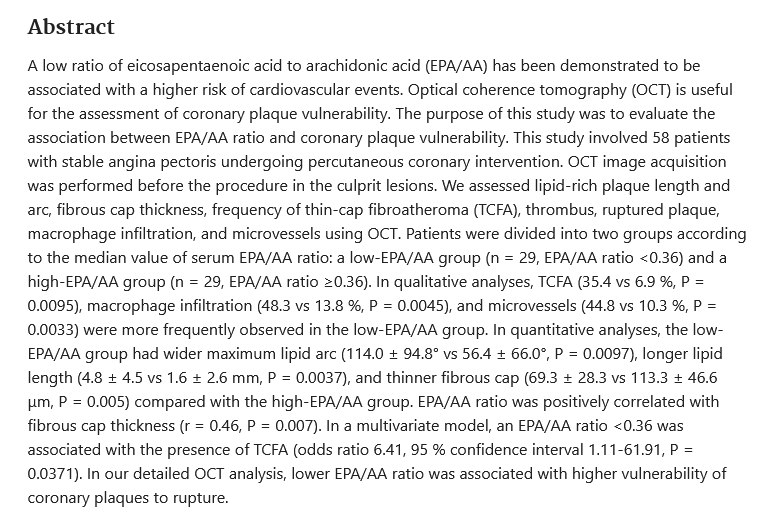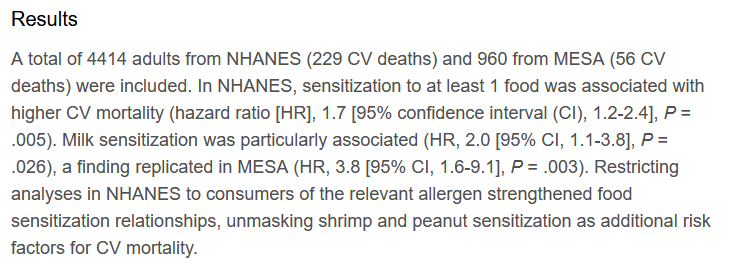@CFLBob You can get the Omega Quant tests, top 3 here:
https://omegaquant.com/shop/
If you get the fancy one, you get all kinds of data. These go on sale, but not to a great extent.
I’m at work, or I’d show you some data (which is at home).
The detriments: this is what’s in your blood, not what’s in your cells; it supposedly tests over months, so there’s no checking to see what happened short-term; these are ratios, so they only tell you relatively what’s happening.
My O6 is bad, as in really bad, and has been that way for a while. Can’t quite figure out why, because I pretty much eat meat and avoid all seed oils like they are the plague. Even don’t eat nuts. I’m sure I’m getting some O6 from chicken and pork, but what I think is happening is that I’m not getting enough O3 (again, it’s a ratio, so you could have a low O3 or a high O6, hard to tell which). I could also be burning though my fat stores, which I assume have a lot of O6 built up. Without being able to test fat, though, there’s no way to know.
@lfod14 I’ve reached the conclusion that we don’t know much of anything. While I think (ok, I KNOW) there are definite different differences in me since being low carb/keto for a long time, what do those differences mean for something like the study above? I’m not sure.
What happens is that everyone (those in the “know”) simplify things too much. Heart disease is caused by “high” LDL or ApoB or Lp(a) or whatever the “bad” thing is right now.
But then you see something like this:
https://www.jacionline.org/article/S0091-6749(23)01251-4/fulltext
Who would think that milk allergies would be associated with heart disease? But a hazard ration of almost 4 is something to see. Not proof of causation, but it’s getting there. (And how does an allergy CAUSE heart disease? I assume something is up with the immune system, but what? LDL going rogue?)
And I see these studies all the time, where X is somehow related to heart disease, yet is completely not LDL, ApoB, or Lp(a). And I filter these studies so that only ones that have high correlations make it through my filter.
Some of them also relate to viruses – if you get sick, you’re more likely to get heart disease. Similarly, if you get a vaccine like the flu vaccine, you’re less likely to get heart disease. (Of course, have to look at RCTs or something similar to avoid bias.)
These you can say the diet doesn’t matter much. But it begs the question as to how much diet does matter.


